Podcast: Download (Duration: 41:13 — 37.9MB)
Get Notified Of Future Episodes Apple Podcasts | Spotify | Amazon Music | Android | Blubrry | Gaana | TuneIn | Deezer | Anghami | RSS | More
In the interview:
01:55 – Is smaller better?
03:05 – The $10 million goal
04:56 – What is the life you want?
06:56 – Defining success
10:30 – The point of realization
13:31 – When it’s hard to let go of work
16:00 – Other considerations
19:16 – Just what is enough?
22:55 – The question of staff
24:36 – It’s not to do no work
27:48 – What Paul actually does
29:52 – A setup that works
32:34 – Products versus services
34:54 – Something to take away
Design a business and lifestyle you love with James’s personal coaching
Transcription:
James: James Schramko here. Welcome back to SuperFastBusiness.com. Today we’ll be talking about business growth. And I’ve brought along a special guest, Paul Jarvis, who has just put together a book which will be out soon. It’s in the pre-sales phase at the time of recording. The book is called Company of One: Why Staying Small is the Next Big Thing for Business. And I’d like to welcome you, Paul.
Paul: Yeah. Thanks so much, James. It’s a pleasure to chat with you today.
James: We got connected by a mutual contact who thought, hey, you both got books on sort of slightly similar concepts, a little bit contrarian, somewhat counterintuitive, and you were kind enough to send me over a preview of the book, which was terrific. And I thought it’d be good to have a chat about your viewpoints and the story behind this book, how you came about wanting to put this message out to the world. And we’ll also obviously talk about what the message actually is. And I think probably to start with, let’s define what Company of One is all about, because the title does imply that we’re talking about a small business here. Would you like to expand upon that?Is smaller better?
Paul: Yeah, and I think it’s funny. I do really like the title but I do think that it’s not a literal title, just like Tim Ferriss’s 4-Hour Workweek. He doesn’t say anywhere in the book that you’re only allowed to work four hours and nothing more. With Company of One, it’s more the idea that smaller can be better, or staying the same size as a business can can be better than growth, sometimes.
So growth is obviously useful and beneficial, but I think only up to a certain point. And that’s kind of where the title came from, where I’m not advocating that everybody run a solo business. I, myself, don’t have a one-person business. It’s more than just myself that runs my company. But I think in order to consider growth and consider what is enough, if we start to look at how much we can pare back, where it still makes sense, where we’re still profitable, where we’re still doing well, enjoying ourselves, then I think the title really does make sense as sort of a mindset to consider when you’re running your business. And especially when your business starts to become successful, then maybe we can start to have a conversation or question the idea of growth and not just assume that it’s always good, always beneficial, always the right choice.
The $10 million goal
James: Right. So it’s very common, someone will state to me their goal is to make $10 million a year. And that comes with certain implications, to have a business doing that sort of revenue level. It certainly means having to do things or take steps that I am not prepared to do. I wonder when people let go of the goals or ideas that have been placed there by others and own it for themselves, and can actually…. Do you think it’s hard for someone to say, “You know what, I may never actually reach $10 million a year, maybe I shouldn’t even shoot for it. And even if I got it, I don’t think I’d be happy with it”? I think that’s sort of a mature grown-up way to look at it that many people don’t ever get to.
Paul: Yeah, it’s like, I’m the least mature, grown-up person I know who’s in his 40s. But I do think that, I think if we think about like, most of us start our own business because we want to do something for ourselves. We want to call the shots, we want to make the decisions, especially if we leave the corporate world where we didn’t have the autonomy that we wished we had. We had somebody like a manager breathing down our throat and telling us what to do and when to do it.
But then I think when we start our own business, we have the intention of doing things different and doing things better, and doing things that suit our lifestyle. But then if we’re not careful, we can end up in the same trappings. We can end up working all of the hours, or working towards goals that we set that we haven’t considered.
You bring up a good point of somebody thinking like, OK, I want to have a $10 million business. Well, that could be good, but it is that 10 million gross or 10 million profit, first of all? And second of all, is that how you want to spend your day? Because to have a business that’s doing eight figs, you are going to have quite a bit of work, you’re going to have a lot of responsibilities, you’re going to have, definitely, a staff. I don’t know how big, but there’s going to be people to manage.
“Every business is a lifestyle business.”
What is the life you want?
And I know, for me, I know the type of life that I want, and I would rather work backwards. So I don’t build the business and then I’m left with the life that I get from that business. I’d rather think about, OK, these are the things that I enjoy in life. This is how I want to live my life. This is what I want my day to look like. How can I build a business that supports that, instead? Because I think every business, I think that the term “lifestyle business” gets kind of a bum rap. But I think every business is a lifestyle business. If you work for a corporation, you have a specific lifestyle, your butt has to be in a chair nine to five, Monday to Friday, typically, sometimes more. If you work for a high-growth startup, you typically have no free time. I have a lot of friends who work at high-growth startups or have started them.
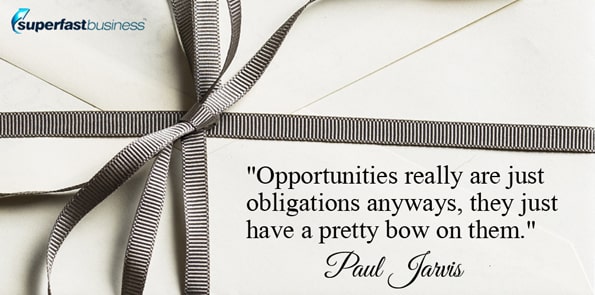 So I would rather have a lifestyle business that kind of caters to the life that I want, and make decisions in my business because it’s my business. If I get to say it’s my business, I get to say, like, Hey, I get to decide. Like, is this opportunity right for me? And opportunities really are just obligations anyways, they just have a pretty bow on them. So I get to make the shots with what opportunities I want to take, what I want to grow, what I don’t want to grow, and all of that. Because I want to live the life that I actually want to live.
So I would rather have a lifestyle business that kind of caters to the life that I want, and make decisions in my business because it’s my business. If I get to say it’s my business, I get to say, like, Hey, I get to decide. Like, is this opportunity right for me? And opportunities really are just obligations anyways, they just have a pretty bow on them. So I get to make the shots with what opportunities I want to take, what I want to grow, what I don’t want to grow, and all of that. Because I want to live the life that I actually want to live.
James: I think it’s really hard for some entrepreneurs to put some stoppers on that, to not just fall into working 80 hours a week or 100 hours a week. We see these guys going around in taxi cabs, texting on their phones, not looking at the window, and that’s their obsession. They’re driven for it. And they’re referenced as heroes in society, which I find really unusual.
And then there’s other people with private jets and fast cars and mansions and stuff. This stuff seems very appealing to entrepreneurs as the goal. How did you take a different path? How did you decide that may not be the path for you? I’m presuming you may not have a private jet at this point in life. Maybe don’t need one, right?
Paul: No, it’s in the shop. No actually, I really don’t like flying so I wouldn’t want any kind of plane. I like self-propelled devices a lot better. Those are actually quite a bit cheaper, like a bike or a paddleboard or a kayak.
Defining success
But yeah, I think you bring up a good point. I think that we’re kind of screwed over in the entrepreneurial space, where we’re shown what one version of success looks like. And that one version of success is shown as like, if you want to consider yourself a success, you need these – private jets, fancy cars, big mansions, Instagram accounts with a million followers. And it’s like, that’s just one version. Like, that’s just one example of the type of success that one type of person wants, whereas there’s a lot.
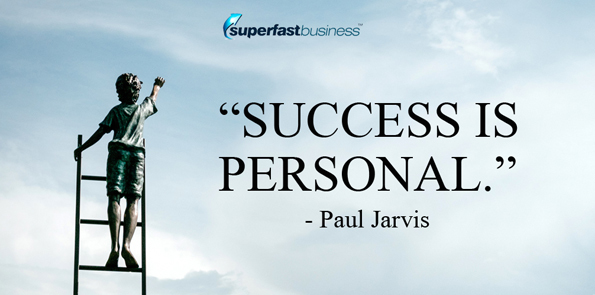 I think that through writing the book and researching the book and talking to hundreds of people about this, success is personal. Like, I can’t tell you what your success looks like in life, any more than you can tell me or anybody else. So I think that if we look at, like, what do we actually want, are we living our lives, are we running our business for somebody else? For our social media accounts? Are we running it just to look good to other people? I doubt the answer is “yes” to those questions. So I think that we can make decisions, better decisions around running it.
I think that through writing the book and researching the book and talking to hundreds of people about this, success is personal. Like, I can’t tell you what your success looks like in life, any more than you can tell me or anybody else. So I think that if we look at, like, what do we actually want, are we living our lives, are we running our business for somebody else? For our social media accounts? Are we running it just to look good to other people? I doubt the answer is “yes” to those questions. So I think that we can make decisions, better decisions around running it.
“A lot of growth after a certain point comes down to ego.”
But I do think a lot of it comes down to ego. A lot of growth after a certain point comes down to ego, because we think that we’ll look better. Like, if you ask me not what I do, but how I spend my days, like, I sit in my sweatpants and work from my home office. And that doesn’t sound as good as like, well James, I have 150 employees across eight offices in four countries. But that doesn’t really matter if that’s not what I want. It just seems like it will sound better. And I think sometimes we let our ego really drive the direction. And I don’t think it’s always the direction we actually want to be in. It’s like keeping up with the Joneses, but like, Business Edition, I guess.
James: That’s good. You know, I think “success is personal” is a fantastic mantra.
Paul: Yeah.
James: And I’m constantly having these discussions with people. I think it’s just so ingrained, and absolutely it’s tied to ego. It’s probably from word tracks placed there when someone’s very young and they have never questioned it, what would success mean for them?
I remember one of my mentors actually said, you know, “What is wealth?” And he said, “If you’re going to say money in the bank, you’re wrong.” I didn’t really understand what he meant at the time. But I realized he was having some challenges with his relationships. And he had lots of money and lots of status and all the things, had the nice watch and car and suits and everything. I think he had like 50 pairs of boots. But he was deeply unhappy. He was a deeply unhappy individual. And I realized there’s more to it. And I remember researching other things like LifeBook, and realizing there’s so many other segments other than just financial success.
But I think that’s very on topic. If you are sitting there in your tracksuit pants in your home office, it just doesn’t sound as impressive as having an office in each country. I think we are tuned to have that strong ego, to feel like we’re the king of the jungle. There’s some kind of alpha male I think in some of these male driven entrepreneurs.
Paul: Fore sure.
James: And certainly some of the the ladies are wanting to step away from the typecasts that they get set into as the homemaker and meal cooker and all of those things. They want to blaze a trail.
I really like that, success is personal. What was it for you? When did you realize? Because you said you have friends who are in the high-growth, no-life zone. How did you step out of that?
The point of realization
Paul: Well, I tried. I tried that and it didn’t take. So in my early 20s, when I had only just worked for myself for a little bit, I was like, well, I’ll be a success if I make a million dollars a year, and that was to start. Like, that was my initial goal.
And then I was like, OK, this is how much I’m getting paid. And I was doing services, not products at the time, too, which is even more difficult to make substantial money. But I was like, OK, this is how much I want to make. This is how much I’m charging. If I’m not working, I’m not making money. Therefore, all I should do is be working. And that lasted probably like a month and a half. And this was when I had way more energy and didn’t need as much sleep, when I was substantially younger.
And it didn’t take. Because it fell apart from actual introspection. When I started to think about, like, OK, why do I need a million dollars? I didn’t have a good answer. Or why do I need to work 16, 17 hours a day? And I didn’t have a good answer other than the fact that it seems like this is a goal that successful people set for themselves. Therefore, this is my goal. Therefore, I should work towards it. As opposed to how about I put myself into the mix and see what I want.
“Money does indeed buy happiness, but only up to a certain point.”
There’s a, who is it by? I think it was Gallup World Poll did a study of the 2 million people across 160-something countries, and they found that money does indeed buy happiness, but only up to a certain point. So you’re happier as you make more money from zero to about 60 or 70K a year. Because obviously, if you have money to put a roof over your head, put food on the table for your family and cover the necessities, the more you have to cover those things, the actual requirements, the happier you’re going to be. And so more money equals more happiness up to a certain point.
But then the study also found that when you went past it, more money equalled more stress, more chasing material things, more unhealthy social comparisons. And they found, I think it was like $95,000 US was, like, the optimal amount where you can cover your necessities and you can have money for long term goals like savings or retirement and that. And that’s like, that’s a decent amount of money, but it’s not millions or billions of dollars. You’re not buying a private jet on $95,000 a year. You’re not even flying first class for that much money.
James: You’re not buying anything in Sydney for $95,000. You’re on the breadline at 95 grand. That’s something that really contrasts for me. You were wondering why you need a million, and I knew exactly why I needed it. I had four kids. I had a mortgage on a house in Sydney, which at the time, we’re talking 16 or 17 years ago, I bought a house that was almost a million dollars, and that’s just a normal suburb of Sydney. It’s just not cheap. Food, petrol, housing, family, kids.
When it’s hard to let go of work
I think for me, it was almost the opposite. I actually went really well in that high-pressure environment and rose to the top. And so letting go of that was much harder for me than for someone who doesn’t even want to do it or doesn’t have a need to do it. That’s the part that I found really challenging. I don’t have any issue getting motivated to do work. I had to work really, really hard on stopping the work.
And that’s where I see a lot of people who I work with have that, they just will lean into work as a natural habit if there’s nothing stopping them. And for me, it was like starting by trying to take a Sunday off and then pulling back to the weekends and then grabbing Monday and Friday as well and blocking those from calls. I had to work so hard on not just gravitating towards building my business, because I’d become quite adept at it. So you know, it’s the opposite to the lazy person who doesn’t want to do anything or hasn’t got the resources. It’s like you have this abundance of desire to do it.
Paul: Yeah. And I do think a lot of entrepreneurs are like that. Like, I actually really love work. I don’t love work if I was working 16 hours a day, but for the first six, seven hours some days, I definitely love it, like my wife has to pry me away from the computer some nights. But I do think that finding that balance is really important, because I do think we do need to have lives outside. You do need to spend time with your kids – that makes a lot of sense. And there does need to be other things.
And I find as well that the more I spend, even though I love my work, the more I spend time away from it doing things that aren’t work, the more productive I am and the more recharged and energized I am when I actually get down to business. And it’s a difficult balance, and it’s like the whole conversation we’re having, basically enough, right? We need to have enough of things, but then if we have more than enough then that creates as unhealthy a balance as not having enough.
And it’s different for everybody. Like, a buddy of mine that lives in the same province here also has four kids. And he definitely needs to make more than me just because he has more mouths to feed and more college tuitions to eventually pay. His kids are all under, I think, 13, so he will eventually have college tuitions to pay for.
James: Poor guy.
Paul: Oh yeah.
Other considerations
James: I think that’s an interesting one, because if you combine this with other things, like, there’s a little bit of instability out there and the political environment we have. Technology is a huge one. It’s a recurring theme on podcasts that I’ve been recording lately, is the pace of things changing. And you also referenced this in your book, that a lot of the businesses are not in business in the future. I think there’s this idea that we want to tuck a few chestnuts away for the long winter coming.
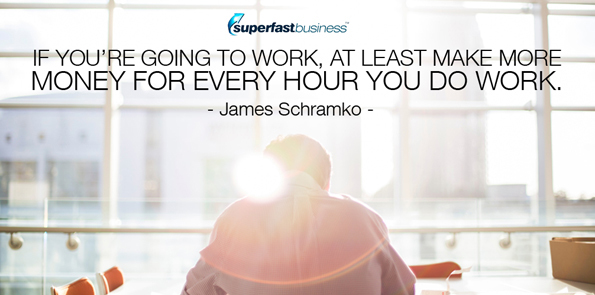 For me, I like to have reserves. I want reserves and security and I find comfort in that. And the whole tone of my book was, you know, if you’re going to work, at least make more money for every hour you do work as one of the prime filters. Do good work, be effective with your work, have better business models, use leverage with your team and automation. And make sure that you’re doing the work you love and the highest value stuff. So that was definitely an idea that helped me.
For me, I like to have reserves. I want reserves and security and I find comfort in that. And the whole tone of my book was, you know, if you’re going to work, at least make more money for every hour you do work as one of the prime filters. Do good work, be effective with your work, have better business models, use leverage with your team and automation. And make sure that you’re doing the work you love and the highest value stuff. So that was definitely an idea that helped me.
And luckily for me, I live in a warmer climate and surfing is a more practical proposition than it is where you are. I tell you, we’ve just gotten to boardshorts weather where I don’t have to wear a wetsuit anymore until probably May, April next year. So it’s like, you know, you become like a super athlete without all that extra material. And you were telling me earlier that you’ve been surfing in the thickest of thick wetsuits.
Paul: Yeah. The ocean is six degrees, summer and winter here. It doesn’t change. It’s always cold.
James: Do you travel to warmer climates and like I do?
Paul: Oh yeah.
James: When I go to the Maldives or the Philippines and the water is as warm as a bath, it’s amazing.
Paul: Yup. The first time I surfed in Hawaii, I was like, I don’t understand. I’ve been doing it wrong, in my six-mil wetsuit with like, booties and a hoodie. And that spoiled me, for sure. But also, I was able to catch so many more waves than locals, because I could paddle so hard without six millimeters of neoprene on my shoulders. And I was used to surfing beach break. So I could paddle into anything. I didn’t care if it looked like a good wave or not – I could catch it at least for a little bit.
James: And where you live, it’s like, they literally film survival shows there, where there’s like bears and, was it coyotes and…
Paul: Wolves.
James: Wolves. Yeah, people actually perish there. So it sounds a lot like Australia, actually, we’re pretty much everything will kill you. So you’ve got that tough.
But back on track, the surfing for me was the lever or the freedom thing to say, hang on, just back off a bit, buddy. You know, you’ve achieved a lot of the things you set out to do. Maybe all those things aren’t important. And I don’t mind if other people have their definition of success, and it works for them. And I think it takes a lot to let go of the ego of not really caring what people might think if you don’t have a private jet, or if you don’t have an international office. And I’ve now gotten really good at just not bothering at getting hung up on that.
Just what is enough?
But I think that’s a really tough one for people, especially who might be listening to this particular podcast. They’re in that precipice of you know, a good chunk of my audience are actually really successful. On my last survey, I think 70-something percent of my customers are making over $100,000 a year. So they’re in that zone where, you know, how do you know what enough is? That would be an interesting topic.
“Enough is different for everybody.”
Paul: Yeah, I think so as well, because I think that enough is different for everybody. And I think for me, at least (and it is kind of what we’ve been talking about anyways) I think enough for me is working hard to get what I need, but then if I worked harder past that point, it would be one, diminishing returns, and two, it would require more of me than I’m willing to give.
So I could probably make more money if I hired a few people. I don’t actually really like managing people. I’m much better at doing work than delegating work. I don’t ever want to have a business where I’m in charge of people and not doing the work. And that’s different for everybody. I have friends that are, like, they were born to manage people, and they excel at that. And the world needs people like that. But I know that that’s not me.
And so I can make decisions based on OK, if I want to keep my business, like myself and five other freelancers and two partners, then I can make decisions based on that. Like, I’m not going to make a product that’s going to require me to hire more people. I’m not going to add a feature to a product that’s going to require me to add on a lot more support than I can handle. Or I’m not going to do something where it’s going to require the bulk of my time, because I have other things that I like to do.
So enough for me is really just figuring out, OK, I know how much. And I’m glad you brought up the point as well about savings and that, because I’ve always been big on putting money away into, just like, index funds, like just things that aren’t, I’m not going to play the stock market and buy and sell stocks every day. I don’t even know how to do that. But I am going to put money into things that pay off, on average, higher than inflation. Otherwise, I’m losing money off of my money.
And I’m always going to have a buffer, because I don’t like being stressed out. So all of the things in my business are basically, all the processes and systems are put in place to avoid stress for me. So I know if I have 40K in my bank account, liquid, I’m not stressed out about money. I know that if I put as much into savings as possible that I’m not stressed out about money. I know that if I’m always putting at least a couple of grand into all of my accounts every month, then I’m not stressed out about that. So I do things to be as less stressed as possible in my work, because then I feel like I’m happier and I’m more, it’s easier to get into the flow.
Even with writing. Like, I write a weekly newsletter, and it goes out on Sunday mornings, or Monday if you’re in Australia. But if I had to write that the hour before, if I had to write that my Saturday night for Sunday morning, I would be too stressed out to write something good. So I write ahead of my schedule by about three or four weeks. I get my copy editor to go through it as well. So they open and close courses and send out the right emails to the right people at the right time. So I’m always trying to do things that make business as less stressful as possible, just so I can focus on the on the part of the business that I really like to do, that I really like to tuck into and get down to work with.
The question of staff
James: Yeah, we’re on the same page with that. For me, having a little team helps me. But again, I did this scenario where I built up a team of 65 and then I’ve shrunk it down to five. Without any job loss, of course. I sold my businesses and kept a little dream team. However, for me, having been a general manager running a team of over 70 people, five people is a walk in the park. That’s the easiest thing in the world. And the newest person in my team started over five years ago so we have such good rapport.
Paul: Yeah.
James: That it makes sense. But I remember when I quit my job, I wanted a business with no staff, no stock, no physical premises. I had a pretty big list of filters. But I did loosen up on the staff one. I ended up getting some stock but not much. I guess you could probably call a book stock, but I definitely don’t have a garage full of them. In fact, presently, I got one copy of my book on hand here. A dog-eared copy I use when I’m doing a podcast, and that’s it.
So it’s very interesting. We’ve come at this from slightly different angles. But I think for me, the driver in the beginning was having a family, and just the cost of living skyrocketed. So you go through that phase of you just don’t have enough, and you know you don’t have enough, and that’s the desperate scramble. Luckily, I figured out how to solve that.
And I think, you know, some people never get there, and they’ll end up being on Social Security or benefits of some kind or dependent on other people. And then a lot of the entrepreneurial types will succeed and will come up with an offer that converts, that scales, and that they can make it work, and to get enough.
It’s not to do no work
But then I think many people overshoot. And that’s why I’ve highlighted that one on this particular episode, because that’s a common conversation I’m having. I’d say I have it on a weekly basis. I just literally had it before this call, with a coaching student who does not have kids, is in his 40s, has more than enough money, is really good at what he does. He’s sort of asking, like, how do you decide what the next goal is? You know, it’s like, where do I go from here? And I sort of lean towards, well, what do you do when no one’s looking? Like, what do you gravitate towards? So I think some people just fill the void with work because they’ve got it ingrained.
“Some people just fill the void with work.”
So I remember deconstructing my workaholic mode and removing work chunks and de-stressing my business by selling off things and taking up surfing and I now have, I have the best life that I’ve ever had, now. Certainly, I do like to think that I’ll continue to do the the activities I enjoy. I’m pretty hands on with some of the things I do. And what you’re saying, and I support this, is that it’s totally fine to do some active work. We’re not saying hammock slash pina coladas, let your trading auto bot do all the work for you and you’ll be wealthy. There’s going to be some inputs required, right?
Paul: Yeah, for sure. I think that doing the work is good. And I think that especially with where things are with the internet now, it’s so easy to offload the boring stuff anyways. Like, when I started doing websites in the 90s, it would require about five or six months of work to be able to put a product that somebody could enter their credit card on the internet and you could get payment for. Now it takes about five minutes. You sign up for a PayPal or Stripe account and you’re good to go. If I want to send something to 30,000 people, I just log into MailChimp and send an email.
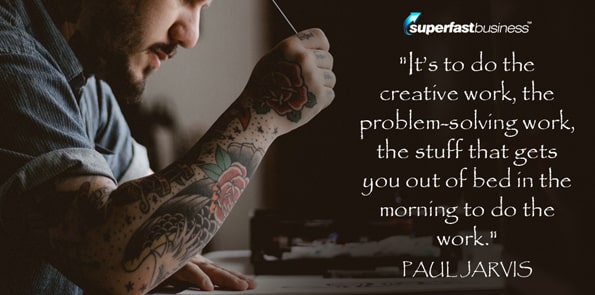 And it’s like, all of these things make it so much easier not to do no work. Exactly what you’re saying here – it’s not to do no work, it’s just to do the best work. It’s to do the creative work, the problem-solving work, the stuff that gets you out of bed in the morning to do the work. And then if all the other things can be taken care of, then you don’t have to do work all day every day without end and without sleep. You can do the work and then stop for a little bit, or find ways to be OK with stopping.
And it’s like, all of these things make it so much easier not to do no work. Exactly what you’re saying here – it’s not to do no work, it’s just to do the best work. It’s to do the creative work, the problem-solving work, the stuff that gets you out of bed in the morning to do the work. And then if all the other things can be taken care of, then you don’t have to do work all day every day without end and without sleep. You can do the work and then stop for a little bit, or find ways to be OK with stopping.
James: I kind of stopped moving forward when I traveled a lot. I’ve certainly traveled a lot in the last 10 years. I’d say, when I’m at home, that’s like Build Mode. And then when I travel, it’s Sustain Mode. And then I did take a few years kind of off where I just, I didn’t do active videos, didn’t do active podcasts, kept the coaching to a minimum, and the team were just running this stuff. And I was just working off the back of all the crops that I’d planted before, you know? The harvest was running around all by itself. So that’s real leverage. And I’m a huge fan of leverage. I think that’s what you’re saying. You can leverage things around you and have intelligent inputs to get results that deliver you enough.
So I’m curious, what is it that you actually do now in your small business that’s not on a growth tear?
What Paul actually does
Paul: Yeah, I do a couple of things. Like, I really love making things on the internet. So I have a bunch of active software projects that I’m working on. I host a few podcasts. I teach a few online courses – the courses run pretty much without my input. My only input there is to talk to students who have questions that aren’t answered in all the onboarding material, or to talk to people who have questions that aren’t answered in any of the automation and the sales. Because I feel like those conversations are also really good for my business. Like if I’m not communicating with my audience and learning from them and seeing what they need, I don’t know what’s working or what’s not other than how much I have in my bank account after a product launch. So I really like that aspect of things.
And obviously, I write books as well, which is part of why we’re talking today. But I really like to do mostly writing and design. Like, I’m happy when I’m left to my own devices to either design things or to write things. And then all the rest of my business is taken care of by technology or by just hiring other freelancers who can do the work.
And I mean, for me, for the team that I have, I would rather find the A players, pay them much more than just industry standard, because I know I won’t have to manage them. Say, my copy editor, I don’t need to check in on him. I don’t need to see if he’s doing the work or how he’s doing the work. I don’t need to give them suggestions on how to do the work. He just knows what to do. We have a shared Google Doc, he knows that if I upload a file, I don’t need to email him as well. He gets a notification. He gets the work done. He knows when the deadline is for it because the date’s in the document. I’ve never even talked to this guy on the phone. Like, I’ve never had a real-time conversation with my editor, and he’s edited probably 250, maybe 300 articles for me. We talk on email in emojis. Like he’ll send me the thumbs up when something’s done, or the pencil emoji when he’s received it and he’s working on something. And that’s all that’s required.
A setup that works
So I think working in that way, I’ve kind of found the way that really works for myself. And I do obviously do quite a bit of work, but I also take time away from work. And because my business isn’t 24/7, always on, always needing to be available, I can get… There’s also very spotty cell phone service, to be honest, where I live. So if I’m up for a hike or if I’m out on the water or something, I’m not going to be able to know what’s going on. So I’ve kind of built a business and products around, there’s no real emergencies in the work that I do. So if somebody has a question, I’m happy to answer it, but it’s probably going to be the next day, or maybe in an hour or two. And that’s fine. I’m going to get to it, and it is never going to be something so pressing that they need the answer now and they’re upset that I haven’t answered them instantly.
James: Yeah, I like that. I think that’s one of the appeals for, I mean, I sold off my service businesses because service businesses require customers, and they seem to have high expectations with services. And then usually, unless you’re a software as a service, which is still going to require developers, which is a very special breed. No offense to developers, but they are more difficult to communicate with than regular humans.
Paul: Yes.
James: And you need team. You need people if you have a service business, generally, like a traditional service business. So letting go of that business, selling it, was great to get a payday and to also feel acknowledgement for something that I created and sold. But I love having a more informational-based business.
My SuperFastBusiness membership doesn’t have me turning up at a particular time quotient. I think there’s one live training a month, and that’s good. And there’s local meetups, which are optional. But I like the back-and-forth interactions that happen. You know, it can happen around the tide charts. It can happen around airplane travel. If you just don’t feel like you want to be involved in it, it can be early or late in the day. So I love the flexibility of that. And I think you encourage that, to challenge people reading your book to think about what their own company of one might look like and and how they could start it and what the first version would be. I can see a little bit of lean methodology laced in there.
Paul: Yeah, definitely.
James: And what you might need to do to set it up, to get it working properly. And I think the big theme for your book and for this call is, really, maybe you don’t need a really big company and you can be successful in your own personal way, even if you have a very small business. If you’re not heading off to a job that sucks, that you hate, that’s not fulfilling you or your bank account, and you could have something of your own that just pays a little bit better and you’re doing work that you enjoy a bit more, that will be a real win.
Products versus services
Paul: Yeah, even when I moved from services to products, the idea there was that I wanted to. I didn’t want to fully move from services to products until I was making as much or more. But the caveat was, I had to be making as much or more working less time. Otherwise, it wouldn’t be considered a win.
And I think that the benefit of products is that you can separate the time spent from income earned. So it is a bit more risky, because you have to do a bit of work up front to make the thing, but then there can be scale that happens without growth necessarily on the back end. It takes me just as long to make a course that one person takes as it does to make a course that 10,000 people take. And in doing things like that, I think it makes, even with software, even in working with developers, the potential there I think is worth it a lot of the times.
But I also think that starting in services is a great idea, because I think working one-on-one with people, and really starting to understand what people want and what people need on an individual basis, is the best way to set yourself up for building a product business slowly after that.
I spent, I think, 12 or 13 years doing client service work with the biggest companies in the world and the biggest entrepreneurs in the world. And in doing so, I learned so much about how to meet the needs of people. Like you said, people, clients of services definitely have much higher expectations. And I knew that if I could figure out how to make that work with the people and the companies with the highest expectations in the world, then I could take at least some of that and apply it to making products that cost a lot less than the services I was making but that could potentially scale beyond the work that I had to put into them to do it.
James: Yeah, it’s a very sensible approach. And you know, I’m a huge fan of services and made a good income from it. I’ve been heavily involved in it from the beginning of my career and it’s just, it’s nice, you know, I’m really enjoying the book publishing slash audible phase of leveraged income and you know, this type of business model, I can see why it was a good gig hundreds of years ago. If you can publish things that are interesting for people and get rewarded for it, that’ll be great. I’m sure you’re going to have a lot of success with this book, Company of One.
Something to take away
If there’s a parting message you would like to share at this point, having discussed what we have and summarized some of the key points, what do you think would be the message you want someone to take away from this particular episode and to get some positive gain from?
Paul: Yeah, I think it’s just kind of like what we’ve been talking about here, where we all need to start with the growth mindset, because we all start at zero. We need to build to sustainability, durability, profitability, all those ability, all of those things. Like, we all need to start in a growth mindset, because we all need to build to having enough. But I think if we never question it, we never stop. And if we never stop, we’re only human, we can only work… even if we’re Elon Musk who feels that everybody needs to work 80 hours a week to be successful and that you can’t take vacations, otherwise your rockets explode, and someone needs to explain to this guy the difference between correlation and causation, because his rockets didn’t explode because he took a vacation.
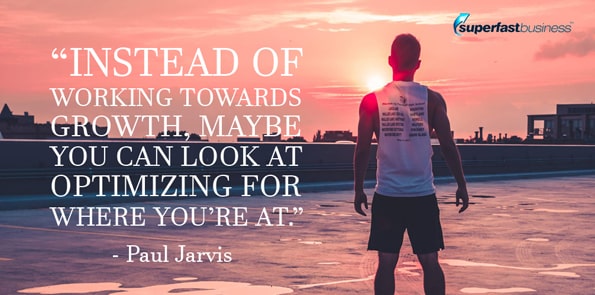 But I think if we never stopped to consider, like, am I happy with where things are at? Is this sustainable? Like, is this enough income to support my life, my family, my whatever? Maybe it’s not. And maybe you keep going, and maybe you keep growing. And that’s perfect. That’s exactly what you need to be doing. But if it is, then maybe you can look at, instead of working towards growth, maybe you can look at optimizing for where you’re at.
But I think if we never stopped to consider, like, am I happy with where things are at? Is this sustainable? Like, is this enough income to support my life, my family, my whatever? Maybe it’s not. And maybe you keep going, and maybe you keep growing. And that’s perfect. That’s exactly what you need to be doing. But if it is, then maybe you can look at, instead of working towards growth, maybe you can look at optimizing for where you’re at.
And I mean, even, like, a good example of this is my mailing list. So my mailing list is where I make most of my money. So that’s where I spend a great deal of time and thought around it. But my mailing list is at a point where one, it generates enough income for me every year, and two, it’s at a size where if I send out an email on Sundays, then I’m going to get a few hundred replies. Half of them don’t need me to reply – I’ll read them all, but I don’t need to reply because they didn’t ask anything. Half will probably have questions and I can sit, spend a few hours and answer those questions. If I was focused on growth for my mailing list, I would just be focused on getting it like, 10 times bigger or a hundred times bigger. And if I did that, I wouldn’t have the time to engage with the people who are on it. And those conversations lead me to new products or making better products or building relationships that foster repeat customers.
And so I think if I didn’t stop to consider that, I would have continued to go on a tear of just trying to, like, get my mailing list bigger and bigger, bigger, bigger. And obviously, it does grow, because it needs to offset the churn of people unsubscribing. But my focus isn’t on growing it. It’s on fostering the relationships with the people that are already on it at this point. So if I didn’t stop to consider, like, OK, maybe this list is generating enough income, this is at a size where I can communicate with everybody on it that replies to me… And so I think we just need to sometimes just stop and think, like, Am I on the right track? Is this aligning with the purpose that I had? And is this kind of giving me the life that I want to be living? And if the answer’s no, and you need more, then keep going. If it’s not, then maybe you can make decisions around optimizing for where you’re at instead of getting more.
James: That’s spot on. I’m going to validate that with my own experience where I think I’ve had around 500 members of my membership for nine years straight. Like, you could put a, what do you call those? A spirit level on my chart and it would be dead straight. Same, I’ve had 30 to 33 members of SilverCircle for eight years straight. And I have, I’ve got my numbers working now. My metrics are 25 hours a week, a million dollars a year profit. That’s really the objective, and it’s sustainable. I think it’s sustainable at that level for the next five years at least. It won’t be that, though. My profit actually increases. And even my subscriber base. It’s the funniest thing, it’s around about 12,000 subscribers. It changes a little bit here and there. But I remember seeing a presentation from Noah Kagan, where he was obsessed with building an email database. And I think he built up 500,000. And then later he said, wrong goal, that shouldn’t have been the goal in the first place.
So as I dial in leverage, I’m finding that the main difference was I worked half as much from one year to the next over the last 24 months. Fifty percent drop in work hours, no drop in profit. That’s why effective hourly rate has been a good metric for me to focus on.
But what you’re saying rings true. If your business is meeting the level that is satisfactory for you, maybe it’s better to go and catch that wave or ride that bike instead of attending another webinar or building another thing that’s going to make you resentful. For me, that turning point came when I had an opportunity to make a phone call that would result in a sale versus paddling down to the perfect wave conditions that I’ve been excited about and looking forward to all week from the forecast. And I took the surfboard. That’s the point in my life where I’m choosing the organic analog activity of joy over a dollar sign, because I have enough.
Paul: Yeah. So the whole book came from me surfing with a buddy of mine so it’s funny that we’re talking about surfing.
James: Yeah, I read that. That’s why it was my first sort of line of questioning. It’s the main reason we’re speaking today. If you didn’t have surfing in there, I don’t know if this could have ever happened. It’s a strong prime filter for me.
I’ll tell you what, if you want to check out what Paul’s got going on, his website is OfOne.co. Paul, thanks for coming and sharing with us some of the ideas behind your book. As someone else passionate about a very similar line of thought, it’s been refreshing and interesting to talk about an alternative approach to what success might look like, and I want to thank you for that.
Paul: Yeah, thanks, James. This was a great conversation, and I’m glad that other people are considering this and talking about this as well. So I appreciate what you put out into the world as well.
James: You know, if we’re very lucky, your book, Company of One, and my book, Work Less Make More, might become Amazon buddies.
Paul: There you go. The recommendation engine will get strong.
James: Power to us. Thank you very much.
Paul: Yeah. Cheers, man.
Thrive in our community of like-minded entrepreneurs inside JamesSchramko membership
Enjoy the podcast? Leave us a review on iTunes
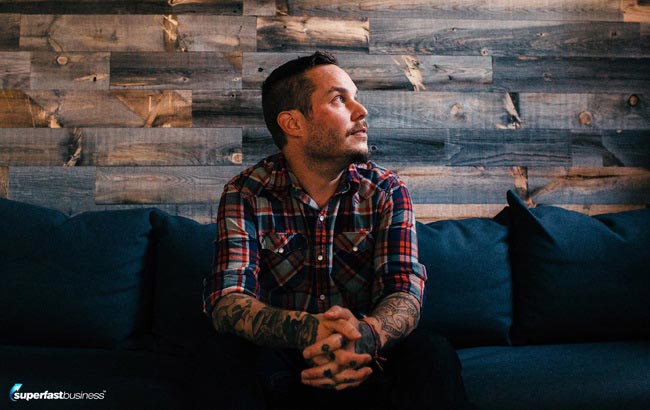
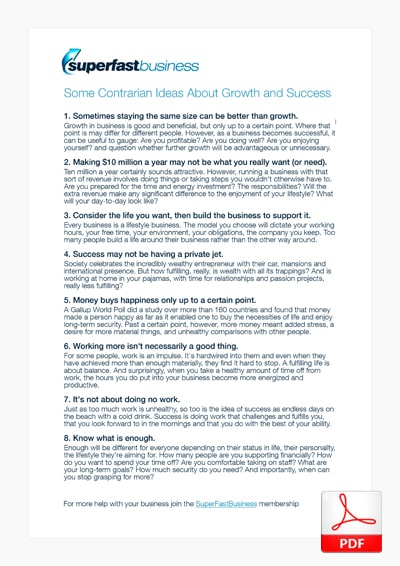
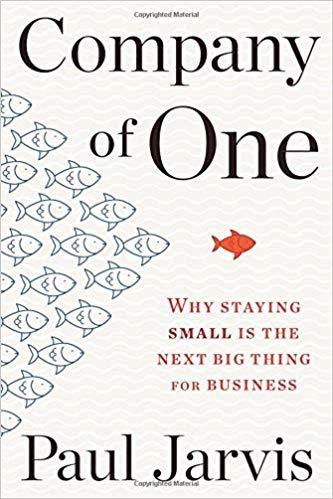
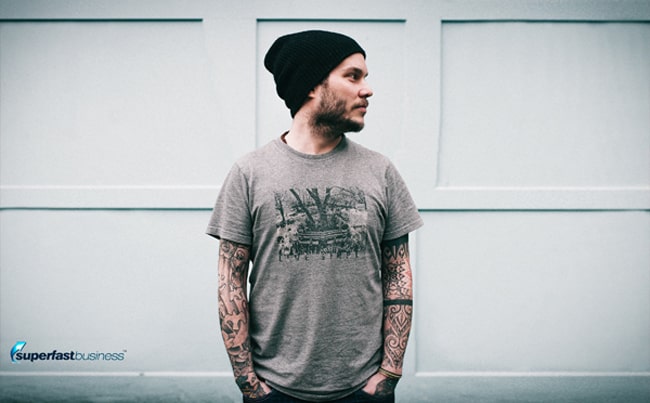

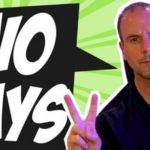

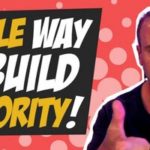





Leave a Reply